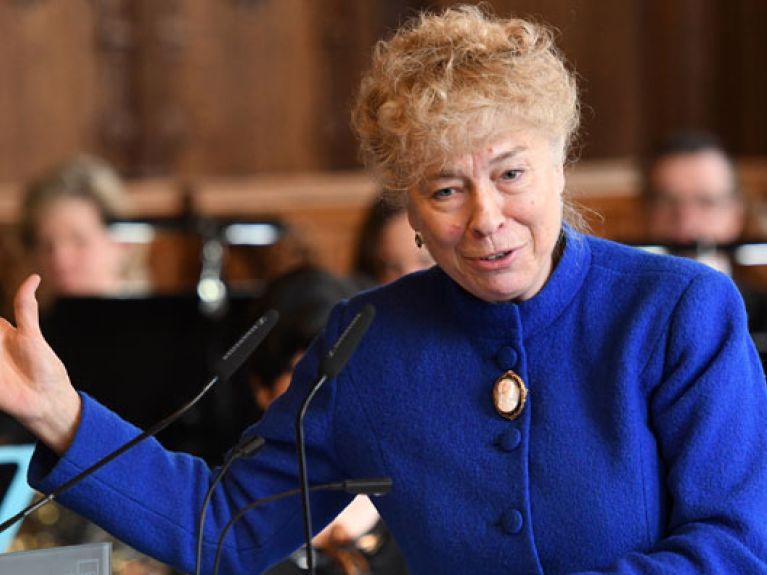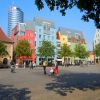The city as opportunity
A European initiative seeks to strengthen the role of local authorities in refugee policies. An interview with Gesine Schwan, President of the Humboldt-Viadrina Governance Platform.

The name of the venue itself showed the direction: At the “European Solidarity Centre” in Gdansk representatives of the worlds of politics and business as well as civil society met to find new ways of receiving and integrating immigrants. The ESC itself along with the City of Gdansk, the Foundation for European Progressive Studies and the Humboldt-Viadrina Governance Platform hosted the conference on “Relaunching Europe Bottom Up”. The President of the HVGP explains how solidarity can be transformed into real action.
Prof. Schwan, the goal of the conference was to “transform the so-called refugee crisis into a European growth and development initiative”. What shape could such an initiative take and how far did the attendees get?
To date, the question of who may enter Europe has been one decided by the nation states. But they failed when it came to settling refugees decentrally in Europe – there is no mechanism of distributing those seeking asylum across the various countries. Yet the potential for solidarity with the refugees, such as we saw in Germany, also exists in other European societies. It exists above all at the communal level and we must therefore find a way for cities to receive refugees.
How can local authorities show this form of solidarity counter to the express wish of their respective national governments, as for example in Poland, where the conference took place?
Legally speaking, the nation states have the power to decide which foreign persons they let in. Yet mayors are often outstanding individuals and if they were to join forces and forge an alliance for receiving refugees this would be an important political statement. A government might then perhaps try and cut the funding those cities are allocated. And this is precisely the opportunity for the European Union, as it could help the local authorities financially. A government can hardly prohibit local authorities from accepting money.
To date, EU finding has tended to be distributed through the nation states.
That costs time and wastes money. Which is why local authorities have for some time now wanted an applications system for direct funding from Brussels. What is also problematic is that the financing tends to be only for individual projects and often for large infrastructure measures. That makes it harder to persuade citizens to identify with the EU. If a new motorway or bridge has a sign saying “Paid for with funds from the European Union” no one really identifies more strongly with Brussels. How different it would be if citizens were able to take things in their own locality into their own hands and get money from the EU for that! At the conference we therefore resolved the basis of a manifesto that captures this idea and defines interim steps along the way.
What is the actual aim?
In Europe we need an investment and growth initiative anyway to overcome unemployment and infrastructural problems. We can interface this with refugees and migration. Our idea is that every local authority, if possible, sets up a body in which political representatives, companies and civil society organizations (meaning trade unions, churches and NGOs) together discuss whether and how many refugees a city will take and how to structure their integration. If the local authority receives EU funding for this and also the same sum again, this time, for example, for energy efficiency projects and job programmes, then one would have a meaningful package.
The conference was called “Relaunching Europe Bottom Up”. Indeed, current challenges seem to be strengthening identification with Europe from the bottom up. Is that how you see it, too?
Yes. The demonstrations by the “Pulse of Europe” initiative are one of many signs of this. Europe has of late drifted ever further apart, because the individual governments keep on doing only that which improves their own prospects at the next general election. So we must form a counterweight to the nation states, and it is not enough to simply say: “Civil society will do it.” Civil society is not structured enough for that. The local authorities should do it with civil society organizations and local firms, as these have always been a core of democratic movements. Since Classical Antiquity, the citizens of cities have taken part in the respective society’s democratic development. And participation also gives rise to identification. The order of the day must be to emphasize that fact.
Helen Sibum conducted the interview.
© www.deutschland.de

